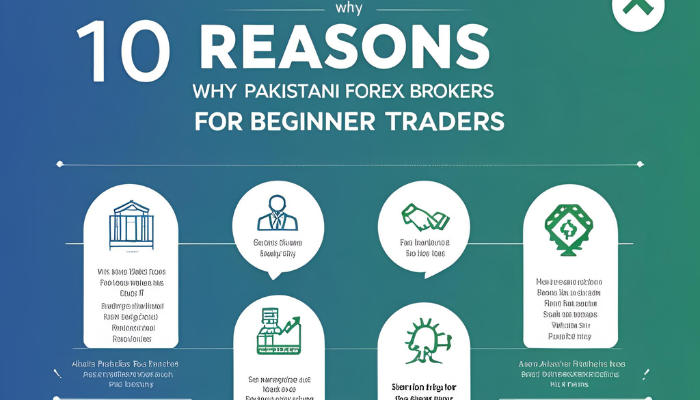When it comes to financial market trading, it can be thrilling as well as difficult. Although the prospect of profit is alluring, the emotional swings that come along with trading frequently cause traders to make rash choices, including trading in response to loss. The frequent hazard of revenge trading is when traders make rash and risky trades. To make up for their losses, they sometimes make revenge decisions. In this piece of write-up, we will examine the psychology of revenge trading. Additionally, we will discuss some useful tips to avoid the risk tendency for traders.
Revenge Trading: What it is?
When a trader experiences a substantial loss, revenge trading is a normal and natural emotional response. They place another trade. Now, this time, they will follow their significant loss without pausing to consider their next move. This trade will be controlled by emotion, and they will not review their approach.
The goal is to quickly recover the losses at any cost. It is believed that losses can be swiftly recovered by placing another trade, which is expected to be profitable. But as you are probably aware, financial markets are difficult to forecast. And the anticipated winning trade would likely end up being a losing one. The loss will be probably larger than the one the trader is attempting to recover.
Learn Strategies to Combat Revenge Trading with Neuron Market
Retaliation trading should be avoided due to the potential consequences for all traders. Here we have listed the most efficient methods to avoid engaging in revenge trading. The approaches are recommended by several trading coaches and trading psychologists who have worked with thousands of traders. Let’s get into it.
Discontinue for Sometime
The best course of action is to take a break from trading. A short break will make you prepare for the next trade. Even for a short while, it might be challenging to maintain an objective viewpoint and control your emotions after a loss.
If you feel that you are disappointed, stop trading, and take a day or two off. The mental relief from the trading market will help you to make wiser decisions in the next trade. Additionally, you need to think about changing your trading strategy. Instead of placing trades, change the way you trade going forward following your brief break.
Accept Your Failures
Accepting that losses are an unavoidable component of trading is an essential component in avoiding revenge trading. No trader, regardless of experience and expertise, is impervious to losses. Trading must be approached with a mindset. It includes both the potential for gains and the chance for losses. The traders must enter the market with a clear mindset that it is completely fine to face a loss.
Evaluate the State of the Market
Now, it’s time to evaluate the state of the markets. The markets seem to be too erratic to trade. There are a few questions that traders need to consider. What are the circumstances in the market at this specific time, making trading challenging? Are there reliable trends or trading possibilities that exist?
If the traders pay close attention to important economic data, events, and decisions by central banks can both present trading opportunities and increase market volatility.
Setting Reasonable Goals
The trading that is more prone to losses frequently results from unrealistic expectations. When faced with losses, traders who think that they will always win more frequently exhibit emotional reactions. This problem may be lessened by setting realistic aims and achievable goals. The goal is not to win every transaction; rather, it is to consistently be profitable.
Make the Required Changes
Now, it’s time to make changes to either your trading strategy or your trading practices. Once you have completed all of the tasks, thoroughly evaluate your trading plan. After you have determined your trading’s strengths and limitations, it may also be time to make adjustments to your plan.
Make Your Self-Evaluation
It’s time to conduct a dispassionate self-evaluation to determine what caused the loss and the retaliation trade. Self-evaluation approach will give you two remarkable benefits. Firstly, when dealing with hard trading conditions like revenge trading, a trader needs to be self-aware. Additionally, it makes you aware of your failures and helps to prevent losses for the next trading.
Develop a Professional Trading Plan
The best way to prevent revenge trading is to have a well-organized trading plan. Your approach, goals, risk-management guidelines, and trading objectives are all outlined in your trading plan. What are the important components to include in your trading plan? The following are the essentials to include in your trading outline:
• For successful trading, you need to establish the criteria for entering and quitting transactions when using entry and exit techniques. It should be based on technical and fundamental analysis rather than being driven by feelings
• Set a limit on the amount of capital you are willing to risk with each deal and don’t budge. A general rule of success is to never risk more than 1% to 2% of your trading money on a single transaction
• Choose the position size for each trade based on your risk tolerance and stop-loss level. It makes sure that you are not putting yourself at undue risk of losses
• Specify reasonable trading objectives. Clear objectives help you keep focused on your long-term performance. Whether they may be monthly profit targets or annual return goals, make your goals according to the market conditions.
Self-control and Emotional Restraint is Must
The key to preventing revenge trading is to keep emotional control. How to keep your emotions away from trading?
After an unsuccessful trade, take a break if you find yourself becoming emotional or impulsive. Take some time to relax and gather your thoughts before getting back to forex trading.
Additionally, to keep track of your ideas, feelings, and the justification for each trade, keep a trading notebook. It enables you to discover revenge-trading tendencies and learn from your errors. More so, mindfulness strategies help you stay present and focused on your trading plan rather than reacting to emotions.
Constant Learning and Improvement
The world of financial markets is always changing. Successful traders adjust and gain knowledge from their mistakes. Keep yourself updated with the most recent market trends and trade ideas. Your ability for decision-making and trading can be improved by continuous learning.
Evaluate the performance of your trading strategy using past data. You may improve your strategy and find points for improvement by doing this.
You can also ask seasoned investors or mentors for advice. Avoid typical dangers like revenge trading by learning from other trader’s mistakes.




